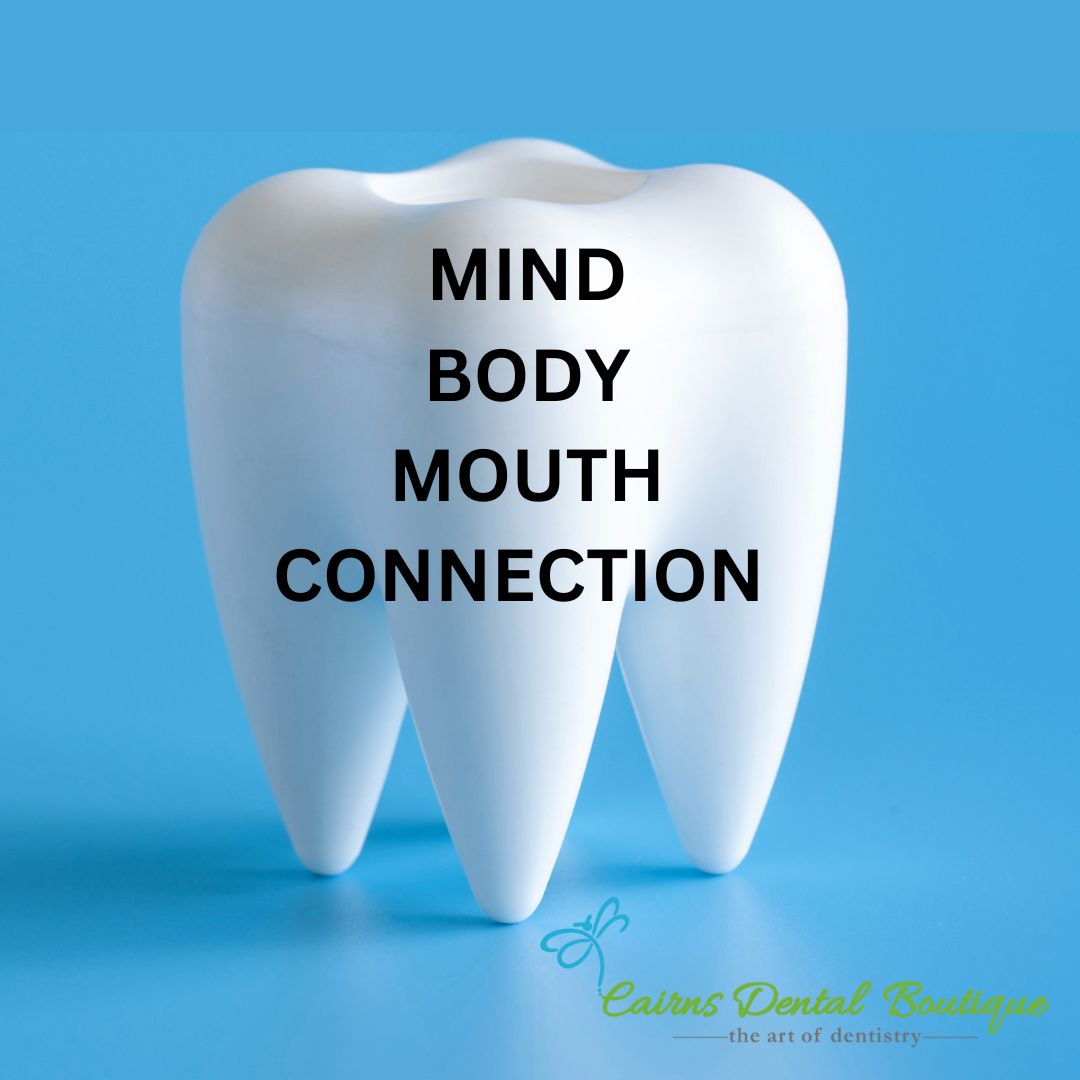Recently Cairns Dental Boutique joined with the Australian Dental Council through Dental Week to raise awareness and promote the campaign on Oral Health. This year the ADA focussed on the mouth, body, and mind and how they are all connected.
There is a growing body of evidence that suggests links between diseases in the mouth to diseases in other parts of the body.
Bacteria in the mouth can travel to different sites of the body and inflammation in the mouth can increase the body’s overall inflammation. In the coming months, our latest series of blogs will be exploring six conditions where the body is linked to the mouth.
- Oral Health and Heart Health
- Oral Health and Lung Health
- Oral Health and Diabetes
- Oral Health and Development of Children
- Oral Health and Alzheimer’s Disease
- Oral Health and Adverse Pregnancy Outcomes
Oral Health and Heart Health
A multitude of research suggests that there is a link between disease in the mouth, particularly gum disease, and heart health. The connection between the two is believed to be related to the spread of bacteria and inflammation.
Gum disease also known as Periodontal Disease, is a chronic bacterial infection that affects the gums and tissues supporting the teeth. If left untreated, it can lead to tooth loss. The primary cause of gum disease is the building up of plaque (a sticky film of bacteria that forms on the teeth and gums). When plaque is not adequately removed through regular brushing and flossing, it can harden into tartar and contribute to gum inflammation.
Now let’s see how this plaque and inflammation in the mouth can affect the heart:
1. Bacterial Spread
The bacteria present in the mouth can enter the bloodstream through inflamed gums. Once in the bloodstream, these bacteria can travel to other parts of the body, including the arteries of the heart. This can potentially contribute to the development of atherosclerosis, a condition where there is a build-up of plaque in the arteries and a major risk factor for heart disease.
2. Inflammation
Gum disease triggers an inflammatory response in the body. Chronic inflammation is thought to play a role in the development and progression of atherosclerosis. Inflammatory markers released in response to gum disease may contribute to inflammation in the blood vessels, making them more susceptible to plaque formation in the heart.
3. Shared Risk factors
Gum disease and heart disease share common risk factors such as smoking, poor diet, obesity, and diabetes. These risk factors can increase the likelihood of both conditions occurring simultaneously.
How to prevent/manage both these conditions:
- Maintaining good oral hygiene and seeking regular dental care is crucial for preventing gum disease and potentially reducing the risk of heart disease.
- Brushing your teeth twice a day, flossing daily, and visiting the dentist regularly for check-ups and cleans are important in maintaining overall oral and heart health.
- Maintain a balanced diet and lifestyle.
- If you have gum disease, your dentist will recommend specific treatments to control the infection and reduce inflammation.
- If you are a smoker – quitting smoking would be the greatest gift you can give to yourself and your loved ones. Contact Quitline 13 78 48 for Help
As your Cairns dentist, we are always here to help! We’d love to hear from you if you need advice on managing your dental care and the impact on your overall health care. Contact us at Cairns Dental Boutique to find out more about our dental services or to arrange an appointment with our friendly team of expert local dentists. We look forward to talking with you soon.





